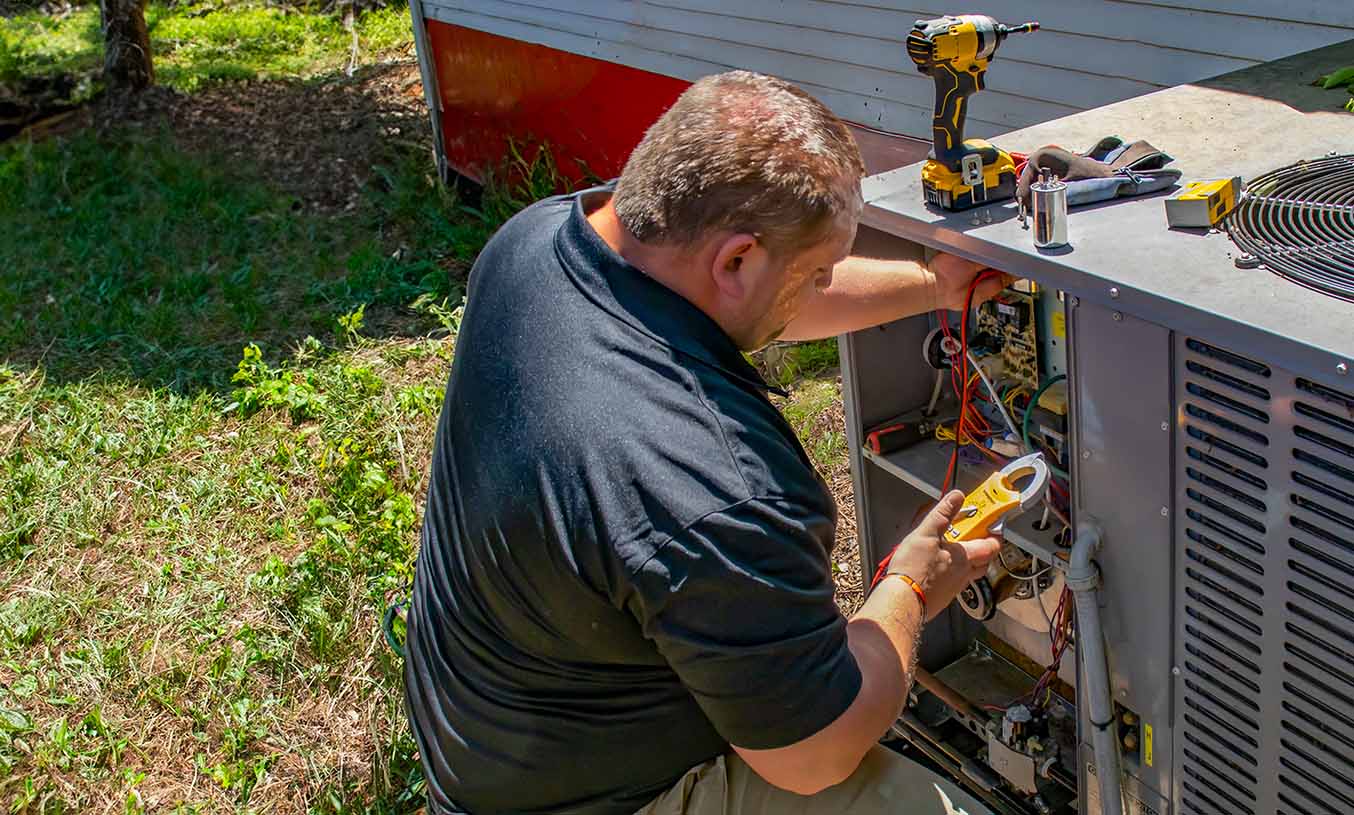

Energy-efficient Cooling
Your trusted partner for professional home services. Quality workmanship, guaranteed satisfaction.




- HEP
- Energy-efficient Cooling
Energy-efficient Cooling | Air Conditioning | Heating and Air Conditioning | Reliance
Whether you’re battling sweltering summers or looking for year-round comfort in Reliance, HEP’s energy-efficient cooling, heating, and air conditioning solutions keep your home perfectly balanced while shrinking utility bills. Our certified technicians pair cutting-edge equipment with meticulous installation to maximize SEER ratings, reduce carbon footprints, and deliver whisper-quiet performance—so you enjoy peace of mind along with perfect temps.
From smart thermostats that learn your schedule to precision tune-ups that extend system life, we tailor every service to your family’s needs. Discover how upgrading your air conditioning can unlock instant comfort rebates, long-term savings, and a greener future, all backed by HEP’s legendary 24/7 support.
FAQs
What makes an air-conditioning system “energy-efficient” and how does Reliance help you choose one?
An energy-efficient air conditioner combines a high SEER2 (Seasonal Energy Efficiency Ratio) rating, an advanced variable-speed compressor, eco-friendly refrigerant, and tight, well-insulated ductwork. Reliance Home Comfort® experts evaluate your home’s size, insulation and usage patterns, then recommend ENERGY STAR®-rated models that maximize cooling while using less electricity. This tailored approach ensures you get the highest performance per kilowatt-hour and avoid paying for capacity you don’t need.
How much can I really save on my utility bills by upgrading to an ENERGY STAR® air conditioner?
Customers who replace a 10–15-year-old AC with a new ENERGY STAR unit typically cut cooling costs by 20–40 %. Savings vary with local hydro rates, home insulation, and thermostat settings, but most Reliance customers see the equipment pay for itself in reduced utility bills within 5–7 summers. Our Comfort Advisors can calculate your projected annual savings before you buy, using real data from the Reliance service area.
Do I need a different size or type of system for a two-storey home versus a bungalow?
Yes. Multi-level homes often have uneven heat gain that requires zoned ductwork or a variable-speed system to keep upstairs rooms cool without over-chilling the main floor. Bungalows generally need fewer cooling zones but may benefit from a higher SEER2 unit if they have large south-facing windows. Reliance performs a free Manual J load calculation that factors in square footage, ceiling height, window orientation and insulation so you get the right-sized equipment—neither undersized (which runs constantly) nor oversized (which short-cycles and wastes energy).
What routine maintenance keeps my air conditioner running at peak efficiency?
1) Change or wash the air filter every 30–60 days during cooling season. 2) Keep the outdoor condenser clear of plants and debris, leaving at least 60 cm (2 ft) of open space around it. 3) Rinse condenser coils with a garden hose at low pressure each spring. 4) Schedule an annual Reliance tune-up: a licensed technician will clean coils, check refrigerant charge, tighten electrical connections and test airflow. Proper maintenance can reclaim up to 15 % of lost efficiency and extend equipment life by five years or more.
Is a heat pump a good energy-efficient alternative for both cooling and heating in my region?
Absolutely. Modern cold-climate air-source heat pumps deliver efficient cooling in summer and can heat reliably down to –25 °C, making them ideal for most Canadian locations. They use electricity to move heat rather than generate it, often lowering annual heating/cooling costs by 30 % versus separate furnace and AC systems. Reliance offers dual-fuel setups that pair a heat pump with a high-efficiency gas furnace, automatically switching to the most cost-effective energy source as temperatures change.
Can upgrading to a smart thermostat improve my system’s efficiency?
Yes. A smart thermostat learns your schedule, senses occupancy and adjusts temperatures in real time, typically trimming energy use by 8–12 % for cooling and 10–15 % for heating. Many models integrate with Reliance-installed equipment and can be controlled through your smartphone or voice assistant. Some provincial utilities even offer rebates for approved smart thermostats, further reducing your upfront cost.